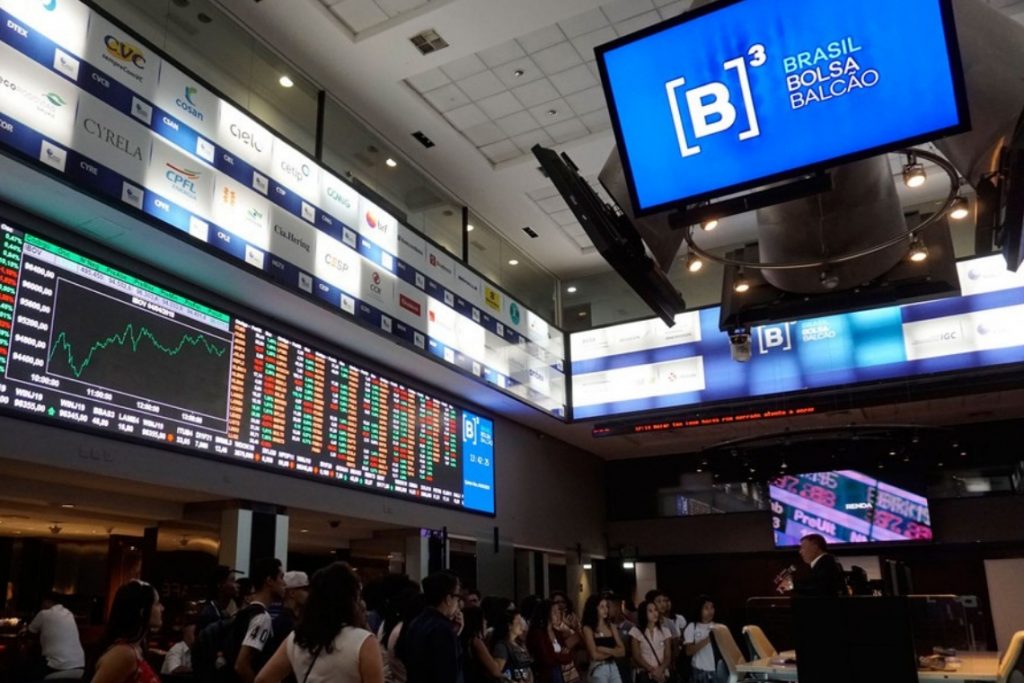RIO DE JANEIRO, BRAZIL – The Brazilian Stock Exchange has never witnessed as much foreign money as this November. Global optimism prompted by the election of Joe Biden in the United States and, particularly the good news associated with the progress of Covid-19 vaccines, led investors from abroad to place R$30 (US$5.6) billion in the B3 this month, the highest figure since 1995, when this data began to be recorded.
The IBOVESPA index on Friday hit a high of 18% in the month, one of the highest jumps among the main world stock exchanges.

Not even the second wave of Covid-19 and the reinstatement of lockdowns in European countries has depressed investors’ optimism. The strategists’ assessment has been that the vaccine enables looking at a longer horizon of about six months, in which it is expected that at least one of the several vaccines which have already proved effective will have been administered on a large scale.
Therefore, this surge in the stock market has been widespread worldwide: in November, the main index of the Mexican stock market jumps 13%. In South Korea, the gain reaches 16%. In the United States, the New York Stock Exchange’s S&P 500 climbs 11.3%.
“The surge in Covid-19 in the USA and Europe should weigh on global growth prospects for the next two or three months,” commented Morgan Stanley strategists last week. “As we near the second quarter of 2021, the impact of lockdowns in developed countries (on disease contagion), high temperatures and the start of mass vaccination should contribute to an improvement in global growth prospects.”
This rebound should boost demand and commodity prices such as steel, iron ore and oil. Companies such as Vale (VALE3) and Petrobras (PETR3;PETR4), which produce these raw materials, play a major role in the B3, and influence market trends. As they accumulated significant declines in the year, along with banks, they became an “easy target” for foreigners, who have the advantage of buying shares traded in Brazilian reais in dollars.
“November was one of the best months for the stock market in ten years, reflecting the prospects in relation to the progress of Covid-19 vaccines and the return of economic activities,” says Igor Cavaca, analyst at the Warren investment platform. But despite the extremely positive result this month, the stock market still has a negative balance of R$55 billion in foreign investments this year.
In the case of the other factor that favored the stock market, the result of the American elections, the assessment is that Biden, as well as being perceived as more friendly to emerging countries, is considered a more predictable politician than his predecessor.
“It is not that with Biden’s victory the USA will be less harsh with China, but there is perception that they will adopt a less disorganized stance, unlike (current president, Donald) Trump, who takes measures overnight on social media,” says Gilberto Nagai, responsible for variable income at BNP Paribas Asset Management. “If this proves true, it will imply further growth for China, which will be good for commodities”.
Local risk
However, optimism has not reduced foreigners’ selectivity. The continuation of returns hinges on the improvement of local conditions, particularly with respect to public accounts. As a result of spending with the pandemic, Brazil should close the year with public debt close to 100% of GDP, a level uncomfortable for countries without an investment grade rating.
“Investors invest in emerging markets and this eventually pours into Brazil. This is not our merit,” says Marcos De Callis, strategist at Hieron Asset Management. “This rotation (between different markets) could run for some months. I just think it is regrettable that Brazil doesn’t have a differential.”
It is the absence of this differential that could lead to this money, which returned quickly, also to quickly escape. What will define the permanence of these funds are the government’s indications regarding fiscal adjustment. “Even if the external market remains favorable, Brazil may not surf this wave if there is no progress in the reform agenda that prioritizes the fiscal aspect,” says De Callis.
However, Brazil will also have an important mission on one of the fronts advocated by the new American president: the environmental issue, which, according to foreign analysts, spooks many investors.
“Biden will demand some policies from Brazil, as in the environmental area, placing the Brazilian president in the front line. We will see how Bolsonaro will react if this occurs,” says Thomás Gibertoni, analyst at Portofino Multi Family.

